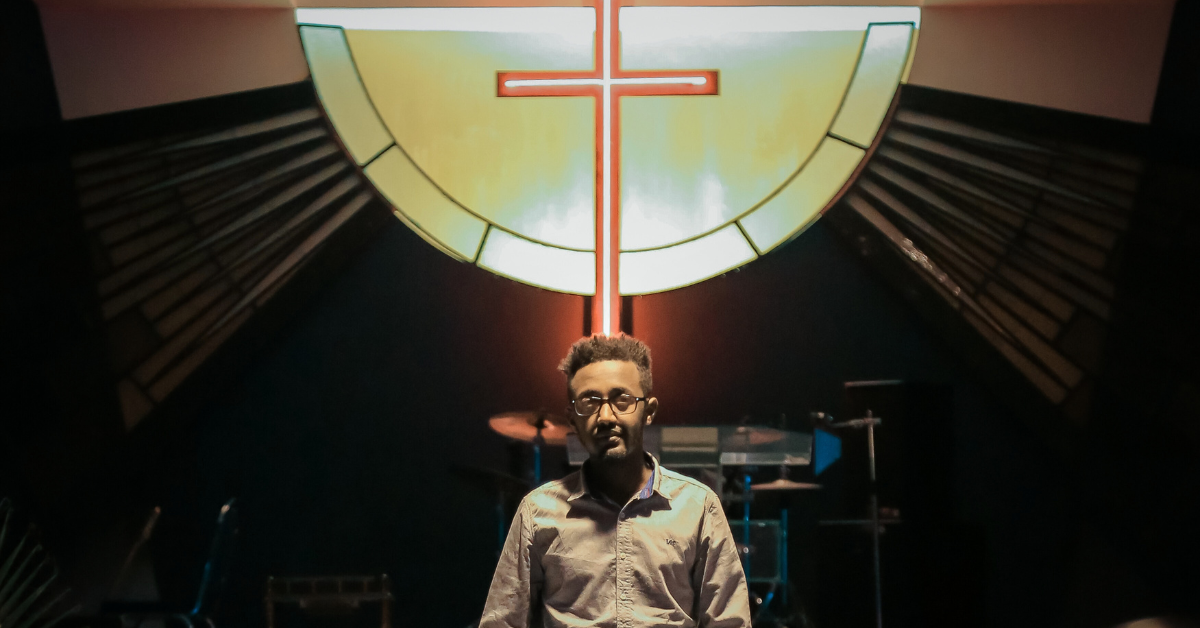In August 2023, Pastor Jorge Acevedo retired as the lead pastor of Grace Church, a multi-site congregation in Southwest Florida. Grace Church’s journey from a traditional, clergy-led/lay-supported approach to a lay-led/clergy-supported model reflects a broader trend in reevaluating the effectiveness of traditional leadership structures in the face of pastoral exhaustion. He discusses this and much more with Dr. Dee Stokes in episode 5.50 of the Pivot Podcast.
From Heroic Solo Leadership to Generative Team Leadership
Not coming up in a traditional mode of faith himself, Jorge always wanted to stress the importance of reaching those with no frame of reference for the church. Realizing that some of the most dedicated disciples might first show up at an event for trivial reasons like “good food and beautiful girls,” and then end up giving “as much of themselves as they could to as much of God as they understood,” before becoming leaders that would help others deepen their own understanding of God. Because of this, his 39-year pastoral journey focused on being a leader for the marginalized, leading churches for the “people nobody else wants or sees.”
An Early Retirement?
Originally planning to retire in his mid-70s, Jorge’s trajectory shifted after a prophetic encounter at Holy Trinity Brompton in London, where he was told that he “would see a harvest of next generation leaders” like he’d never known before.This encounter propelled him into a four-year journey of stepping away from his role at Grace Church, emphasizing a focus on mentoring the next generation of leaders.
Jorge found validation in the idea of diminishing, drawing inspiration from biblical concepts, such as, “in the book of Leviticus, you could serve in the inner court until from 25 to 50, and then after 50 under serve in the outer court. There’s something about that movement. It’s a movement of diminishing that God invites us into. And I’m trying to live into that. I’m trying to live into the pouring out of my life.”
The Underlying Exhaustion: Loneliness and Bad Training
Loneliness Epidemic Among Leaders
Though pastoral exhaustion was certainly exacerbated by recent challenges like the COVID-19 pandemic, Jorge believes there’s more to it. Namely, the pervasive epidemic of loneliness among leaders due to many being taught a flawed model of heroic solo leadership.
Reclaiming Ancient Paths
Jorge advocates for a reclamation of, and return to, ancient paths and spiritual disciplines, as one curb against burnout. “I do think we go forward by going back … My observation is that the Spirit of God is drawing the body of Christ back into the ancient paths that, as Jeremiah said, we need to find the ancient paths and walk down them, and we will find refreshment for our soul. It is the ancient path, the rules of life, the spiritual disciplines, living richly and deeply in authentic community,” that will nourish the famished souls of our church leaders.
Rediscovering Mentorship and Serving God
The role of the mentor, and the importance of mentorship, which has deep biblical roots, has often been overlooked or contorted into something it was never meant to be by the church. Rather than having an experienced elder you can bring your troubles to, it’s often been more about how to do good for the church. Jorge notes the danger of serving the church without maintaining a connection with God. “A person can give themselves to vocational ministry for an entire career, 40, 50 years and realize that they served the institution, or maybe they had a higher ecclesiology and they served the big ‘C’ Church. But were they serving our amazing God who is Father, son, and Holy Spirit revealed to us in Jesus? And are they serving God?” If/when someone realizes they haven’t been, this can quickly lead to a spiral of despair. This is why Jorge urges all of his mentees to stay connected to God through spiritual disciplines.
Join a workshop led by Jorge Acevedo: Burned Out and Overwhelmed on February 29.
A Call for Change: Adapting Leadership Styles
Critique of Heroic Solo Leadership
Jorge criticizes the model of doing more to attract and retain congregants because the underbelly of that form of ministry is that you have to keep doing more to retain them. The exhaustion, he argues, is rooted in flawed training that emphasizes results over sustainable ministry.
Embracing Vulnerability and Collaboration
There is a need for leaders to admit when they don’t know the answers. This cultural shift challenges the traditional expectation for pastors to have all the answers, promoting collaboration and humility. If the leaders have all the answers, they don’t need to look to their community, and find the people God is calling them to find to raise up and encourage. If the leaders don’t, then those laypeople are of the utmost importance, and can finally fulfill the role God intends them to have in the life of the church.
Encouragement for the Weary Leader
Jorge asks tired leaders to remember to live “every day in joy and contentment and confidence in God,” to find “space to be with God, to hear the Holy Spirit, to be astonished by His Word.” He advocates for embracing spiritual disciplines, and finding a team to share the burdens of leadership.
Jorge’s journey from heroic solo leadership to generative team leadership serves as a compelling narrative for the broader conversation around pastoral exhaustion. The need for a shift in leadership models, a return to ancient paths, and a focus on mentorship highlights the ongoing transformation within the church. As leaders grapple with exhaustion, embracing vulnerability, collaboration, and a deep connection with God become essential for sustainable ministry in the evolving landscape of the church.



